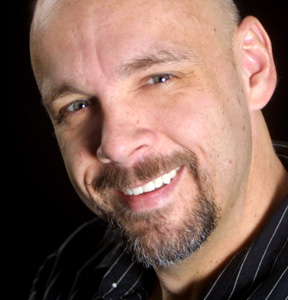Editorial
Front Page - Friday, January 29, 2010
The Critic's Corner
David Laprad

What’s the world coming to? A devastating end, if you believe Hollywood. Last November, billions of people died in “2012” as the sun cooked the Earth from the inside out. In December, audiences watched a father and his son travel south across a barren landscape in “The Road.” And now we have “The Book of Eli,” in which a lone man journeys west after nuclear war and solar radiation leave our planet a hard-baked mess.
In movies about the end of the world, hope generally propels the protagonists forward. That’s why the father and son in “The Road” walked south; they expected to find something better than famine, ashen skies and oppressive cold. In “The Book of Eli,” however, the title character travels west not out of hope, but with a sense of purpose.
After the war, those who survived blamed the conflict on religion and set out to burn every Bible they could find. They did their job well, as Eli, played by Denzel Washington, owns the last remaining copy of the Holy Scriptures. One day, a voice inside Eli told him to take the book west across America, and he’s been traveling in that general direction ever since.
Fortunately, Eli managed to hold on to a King James Version of the Bible, which allows him to spout cool-sounding verses before skewering the apocalyptic dreck that populates the desert sprawl on which the movie is set. “Cursed is the ground for our sake,” he announces to the patrons of an unfriendly bar as he pulls a long and very sharp blade out from under his trench coat.
While the fight that follows doesn’t go well for Eli’s enemies, from the standpoint of a viewer, it couldn’t have turned out better. The sibling directors of the movie, Albert and Allen Hughes, turn the battles in the film into visual toned poems of bone-crunching beauty. I especially liked the lingering shots and the limited use of editing. Instead of the rapid-fire cuts and shaky cam shots that ruin other movies, the Hughes brothers set their camera in place and allowed the action to fill the frame.
Not only did this force the directors to choreograph great looking moves, it allows viewers to look where they choose and soak in every moment. Yes, that’s Washington, slicing, dicing, spinning, kicking and impaling bad guys, all in one graceful string of moves.
Washington does much of his fighting silhouetted against a sepia-drenched sky. To create the look of “The Book of Eli,” the Hughes brothers appear to have drawn from sources as diverse as the Mad Max films and Sergio Leone westerns. Despite being set in absolute desolation, and even with a general lack of color, “The Book of Eli” is a beautiful movie.
It’s also well-acted. Washington is pitch perfect as Eli, whether he’s quietly teaching a young lady how to say grace, reverently quoting Psalm 23 or relieving a highway robber of a few things he’ll no longer be needing, such as his lighter, his canteen and his right hand.
Also good is Gary Oldman, who makes a long-awaited addition to his gallery of villains. Those of you who were sorry to hear about his castration for the “Batman” movies and have missed the Oldman of “The Fifth Element” and “The Professional” will be pleased to see him in the shoes of Carnegie, a appalling man who wants to use the Bible to control people. Mila Kunis brings some much-needed innocence and good looks to the proceedings, first as Carnegie’s stepdaughter and then as Eli’s apprentice.
“The Book of Eli” ends with a twist that casts every preceding moment in a new light. But that’s not what stayed with me as I left the theater. Instead, I was pondering the answer to a big question the Hughes Brothers leave unanswered: Is Eli’s faith misguided or grounded in supernatural reality?
Even more intriguing is the idea that Eli is fighting to preserve something that, at least in the context of the movie, might be responsible for the deaths of billions of people. While Carnegie might have selfish ambitions and his methods are unquestionably cruel, his yearning to unite people under his rule using the power of the Gospel might seem innocuous in comparison. In this movie saturated with browns and blacks, the gray lines aren’t hard to miss.
“The Book of Eli” doesn’t get too heavy-handed. Rather, it offers a good balance of thought-provoking themes and satisfying action. It’s also intelligent enough to allow for different interpretations of its final scenes. While I have my thoughts about what was going on, you might come up with something different that’s just as valid. That makes for a fascinating film. Fortunately, the excellent performances, writing, directing and action make “The Book of Eli” a fun movie, too.
Contact David Laprad at dlaprad@hamiltoncounty
herald.com.
|
|